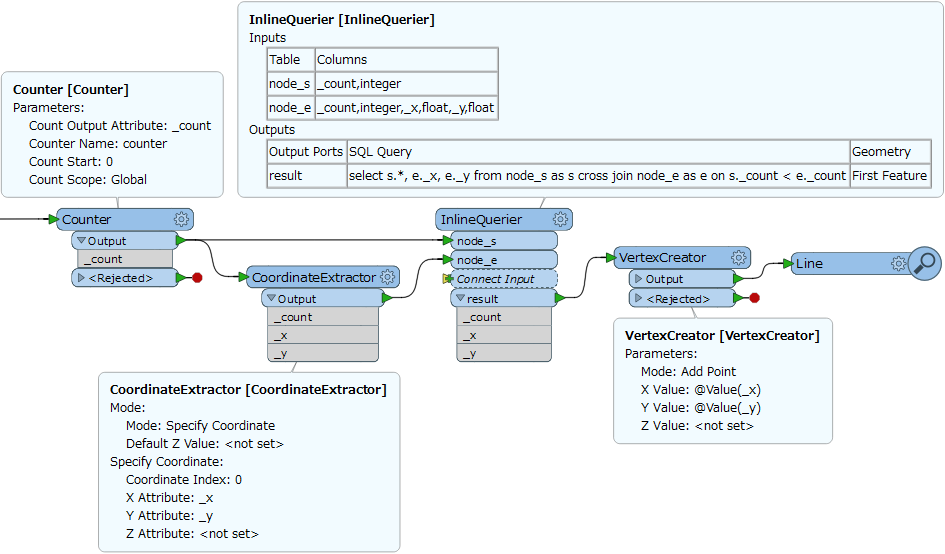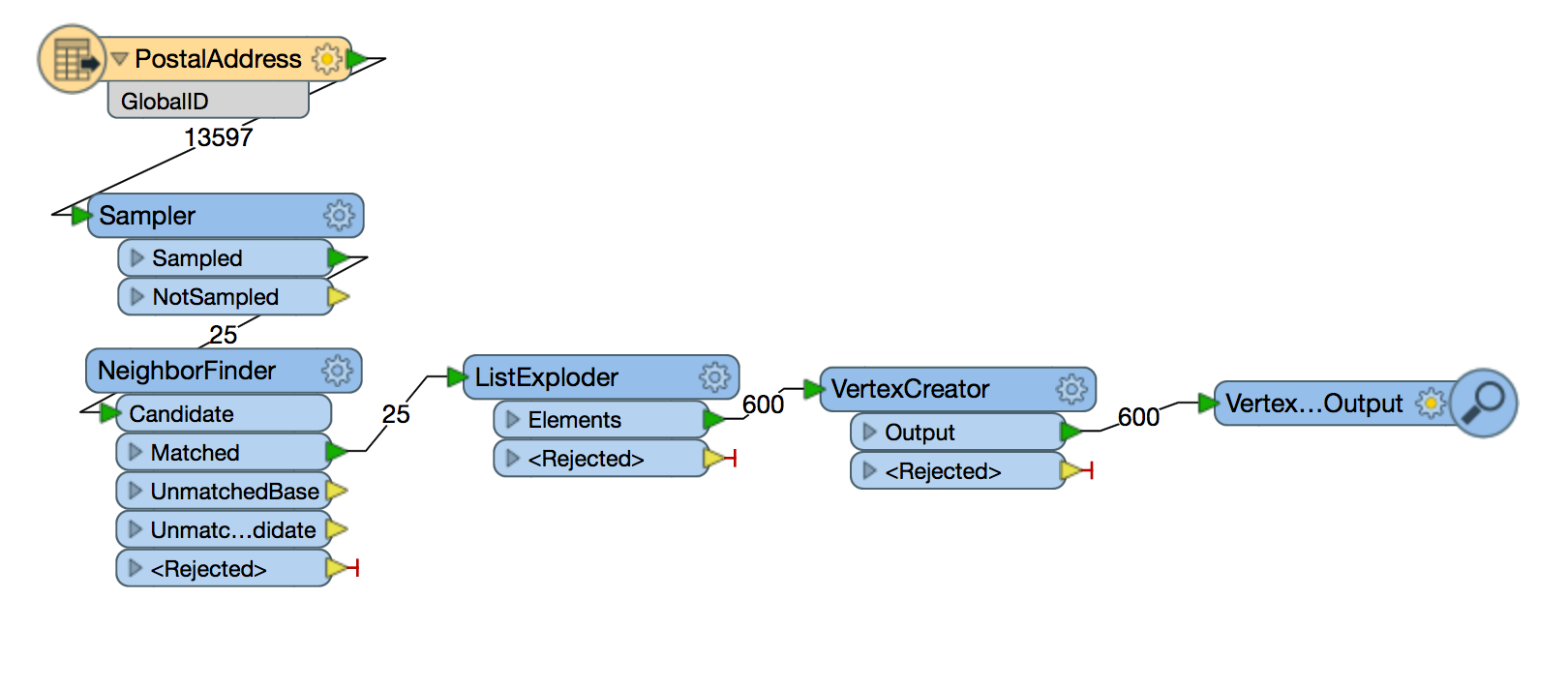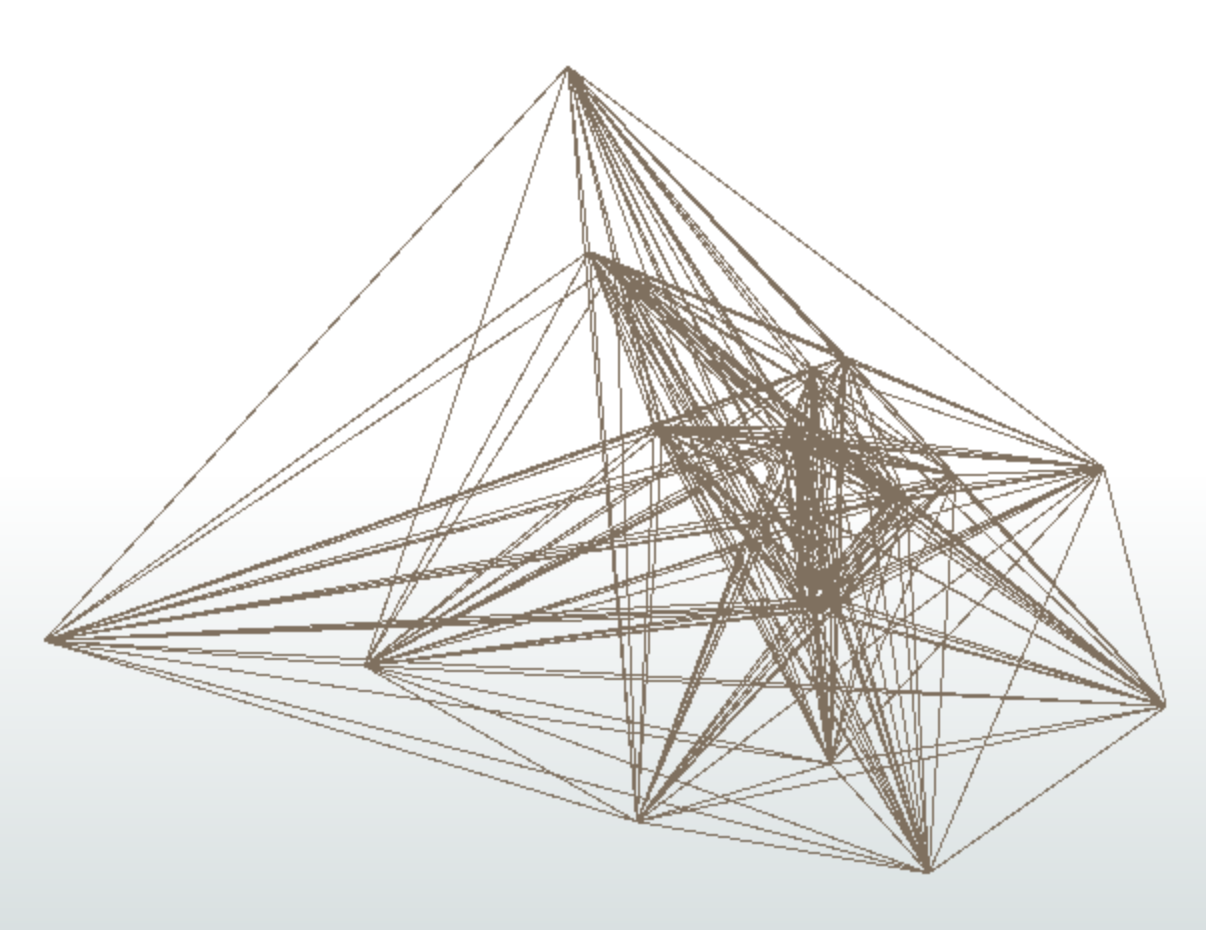Hi,
I am trying to create From-To lines from every point in a shapefile to every other point. I have 45,989 points, so (in theory) each point should have 45,988 lines coming off and attaching to every other point.
I have attempted to use both the FromToBuilder and the LineBuilder, but neither seem to work.
Does anyone have any ideas that might work?
Thanks








